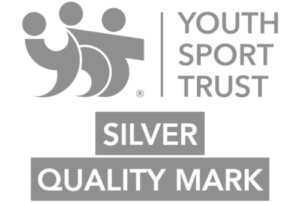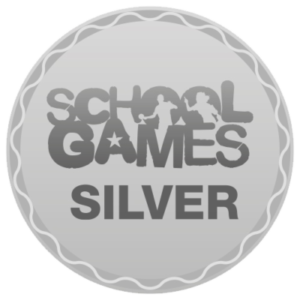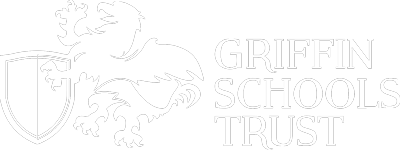Latest news
Websplain Wednesday
Gallery
Filter
>> PE AND SPORT CURRICULUM
Physical Education is at the heart of our school life and is implemented in many areas of our curriculum. From breakfast club activities, to co-curricular clubs as well as the numerous intra and inter school competitions that our Griffins participate in. We provide a wide priority of opportunities to ensure that all Griffins receive the opportunity to represent their school and participate in a co-curricular club.
All our Griffins are involved in the daily mile that also encourages them to be confident in the skills they are learning. We differentiate lessons to support Griffins in ensures every Griffin is challenged to develop their knowledge and skills in key areas. Race Leys collaborates with local schools to challenge and champion our sporting ability and values.
Our PE curriculum is focused around the four ME’s – thinking me, physical me, healthy me and social me. This develops our whole child theme and supports their development across the four years here at Race Leys.
Our impact is felt across the school in many ways. We believe that the physical education that we provide supports our Griffins physical and mental health. Our Griffins, regardless of their ability, are determined to challenge themselves in the pursuit of excellence in their capabilities.
We are proud to have been awarded the Silver award by the Youth School Trust and are striving to gain our gold shortly. Alongside this, we regularly compete in Trust led activities including Griffin Sports Festival and shared sports days.
Curriculum at Race Leys
The national curriculum for physical education aims to ensure that all pupils;
- develop competence to excel in a broad range of physical activities
- are physically active for sustained periods of time
- engage in competitive sports and activities
- lead healthy, active lives.
The Griffin School Trust non-negotiables for PE curriculum planning;
- A minimum of two hours of planned and protected high quality Physical Education lessons where opportunities for pupils to engage in sustained physical activity are maximised.
- Members of staff, ideally with QTS status, who are confident and competent to deliver high quality PE, teach Physical Education lessons.
- At KS2, a broad and balanced multi-skill approach is adopted that builds on the early development of physical literacy skills during EYFS and KS1. Lessons are sequential, there is a logical progression throughout each key stage and pupil s are secondary ready.
- Values and ‘whole child’ theme (e.g. The Four ‘Me’s/Head, Heart, Hands) is evident and embedded throughout.
- All pupils access a broad range of extra-curricular provision as participants, leaders and organisers, which is aligned to, and enhances the curriculum. Opportunities are inclusive, and high levels of participation and competition are promoted throughout.
Our multi-skill PE curriculum consists of a minimum of two hours, teaching contact time per class, each week and places an emphasis on high levels of physical activity during this time. A PE Apprentice supports teaching and lessons focus on the specific areas as outlined on the long term Curriculum Plans and Schemes of Learning prepared by a PE Specialist. Teachers use these to inform their planning and make cross-curricular links to other subjects wherever possible. Differentiation ensures every child is challenged to develop their knowledge and skills in all key areas. Specific continued professional development and support is led by the PE Specialist to ensure the PE & Sport provision is high quality.
Key Stage 2
Objectives;
- To have the movement skills to participate fully
- To have the confidence to participate independently and in groups
- To become a competent, social, healthy and creative mover
During Year 3 and into Year 4, a Physical Literacy approach is adopted to develop the ‘Four ME’s’ (Physical Me, Thinking Me, Social Me, Healthy Me) and ABCs (Agility, Balance, Coordination, Skilfulness).
Pupils learn and begin to link fundamental movement skills to become competent and confident movers focussing on;
- Locomotion: Movement from one point to another e.g. crawling, rolling, stepping, walking, jogging, running, jumping, climbing, hopping, galloping, leaping, skipping, rolling, swimming
- Stability: Body balance in static and dynamic movement situations e.g. standing, lying, sitting, stopping, landing, static balance, dynamic balance, pivoting, twisting, lunging, bending, stretching, turning, inversion
- Object Control: Sending, receiving and controlling an object e.g. reaching, grasping, gripping, receiving, lifting, carrying, placing, passing from hand to hand, sending, receiving, rolling, bouncing, striking, stopping, trapping, retrieving
There will be frequent opportunities to engage in competitive (both against self and against others) and co-operative physical activities, in a range of increasingly challenging situations.
In Years 4 to 6, a Physical Education approach further develops the ‘Four ME’s’ (Physical Me, Thinking Me, Social Me, Healthy Me). Pupils apply their broad range of skills, learning how to link them to make actions and sequences of movement for different sporting scenarios. They gain confidence and enjoy collaborating and competing with and against themselves and each other. Pupils develop an understanding of how to evaluate and improve their health, well-being and performance in a range of activities.
- Running, jumping, throwing and catching in isolation and in combination
- Play competitive games (modified where appropriate) and apply basic principles suitable for attacking and defending. Examples; dodgeball, basketball, cricket, football, hockey, tag rugby, netball, rounders and tennis
- Develop flexibility, strength, technique, control and balance. Examples; athletics, gymnastics
- Perform dances using a range of movement patterns
- Take part in outdoor and adventurous activity challenges both individually and within a team
Swimming and Water Safety
Qualified swimming teachers at Bedworth Leisure Centre provide swimming instruction to all Year 3 pupils. Pupils have 30-minute swimming lessons for 11 weeks that is followed by an 8-week period of ‘top-up’ lessons for pupils who require extra support to meet the national curriculum requirements. Pupils are taught to;
- Swim competently, confidently and proficiently over a distance of at least 25 metres
- Use a range of strokes effectively (for example, front crawl, backstroke and breaststroke)
- Perform safe self-rescue in different water-based situations.
Support for SEND and G&T
All pupils will access PE lessons in a range of roles. Class teachers use the STEP approach to differentiate all lessons and activities to ensure enjoyment and progress for all.
Space: Where is the activity happening? Level (height), direction, pathways, personal/general, area and distance.
Task: What is happening? Rules, roles, targets, actions and dynamics.
Equipment: What is being used? Vary the type, size, shape, colour, texture, weight, and environment.
People: Who is involved? Working independently, in groups, pairs, teams, friends. Work with the same/different ability, roles, sizes.
Additional measures
- Specialist support provided for targeted groups
- Monitoring and developing curriculum delivery
- Access to a range of appropriate resources and experiences
- Monitoring pupil progress










